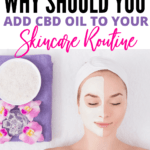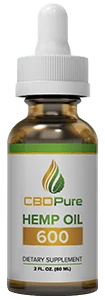If you haven't added CBD oil to your skincare routine, you're missing out! Learn all of the benefits as well as exactly how to choose CBD oil for your skincare recipes!
CBD – we’ve all heard about it; we all know a little bit about it. It’s pretty much everywhere nowadays, and for good reason!
Today, we’re going to talk about what CBD actually is, CBD oil uses, and we’re really going to go over why CBD oil should be a part of your skincare routine!
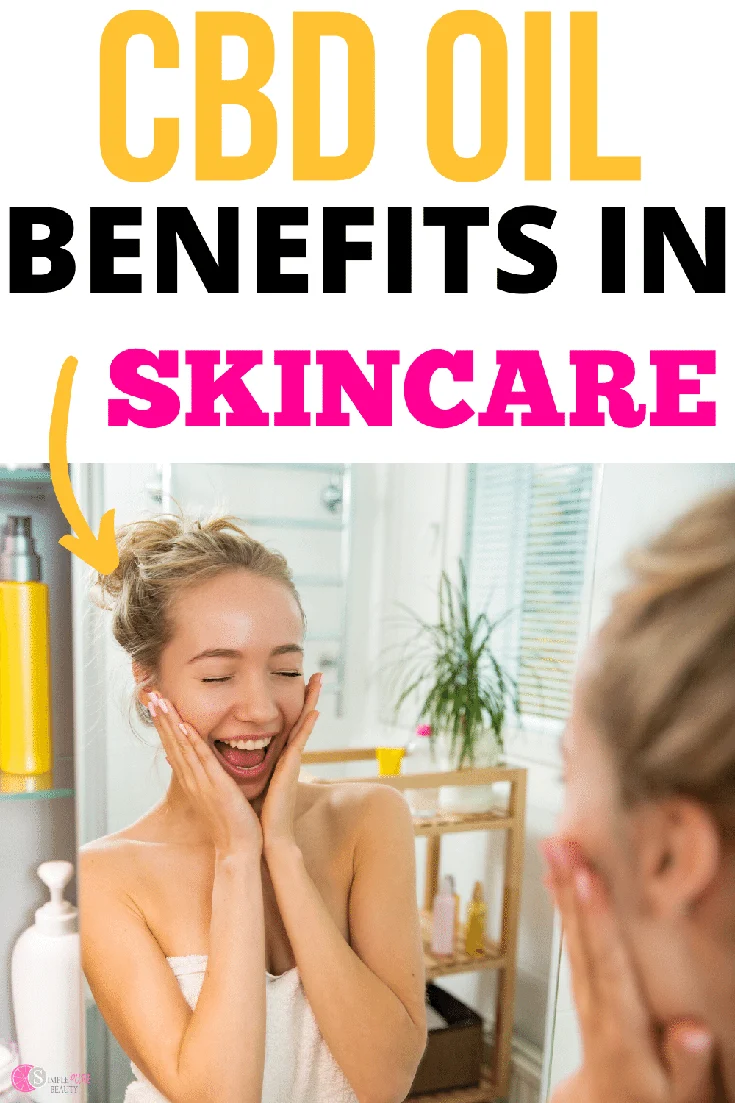
So buckle up, grab some coffee and let’s dive in!
What is CBD oil?
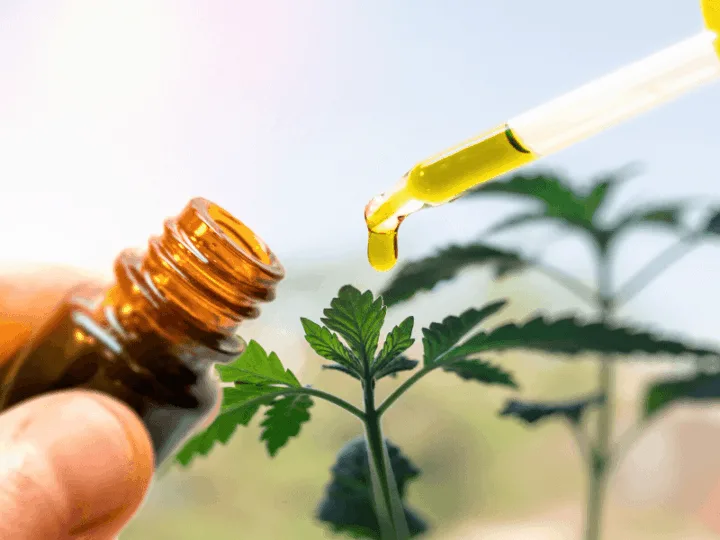
CBD oil, also known as cannabidiol oil, is one of many chemical compounds that are derived from cannabis.
CBD oil is an extract of the cannabis plant that is made to contain high levels of CBD.
Products that only contain CBD are non-intoxicating and do not produce a ‘high’ like THC products, and CBD products are legal in all 50 states.
Why use CBD oil in your skincare routine?
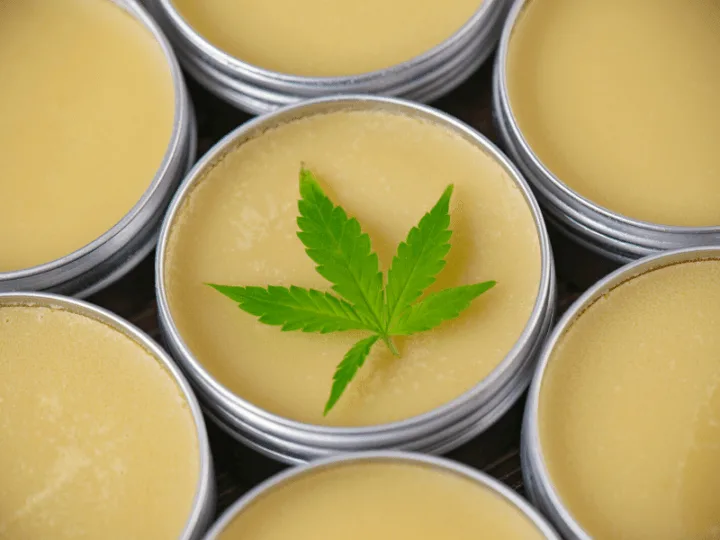
So we’ve seen CBD pretty much everywhere we look, but what exactly can it do for your skin?
CBD is known for having antioxidant and calming properties. As we all know, inflammation is the root of all evil when it comes to our skin, whether it be breakouts, aging, or dry skin!
CBD may also reduce the amount of sebum produced by the skin. All of this means that CBD could help to control breakouts and blemishes. (source)
Studies have also found that CBD products may also reduce irritation with common skin irritations. (source)
Since CBD fights inflammation it can also play a role in reducing the signs of aging.
CBD oil is also very soothing to the skin and can be a great choice for those that struggle with sensitive skin!
Can CBD oil be absorbed through the skin?
The short answer is yes, cbd can penetrate the skin.
When applied to the skin, CBD actually interacts with nearby cannabinoid receptors that are located nearby in the skin.
When it is applied liberally to the skin it can even permeate the pores.
What is the difference between CBD Oil and Hemp Seed Oil for Skin?
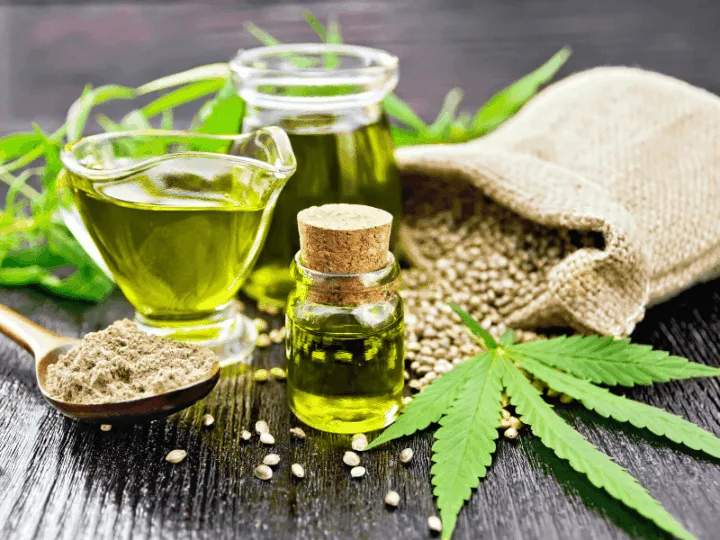
CBD oil and hemp seed oil sound practically the same; they come from the same plant, why aren’t they the same?
Well, hemp seed oil comes from cold pressing the seeds from the plant.
Hemp seed oil contains several vitamins and omega fatty acids which are known for their hydrating and plumping effects.
But, fun fact, hemp seed products do not always contain CBD! This can be very misleading for many consumers who do not know there is a difference.
CBD oil comes from an extract that is derived from the stalk, leaves, and flowers of the plant.
When looking for CBD products pick ones that say broad-spectrum or whole plant. These products are more likely to give you the results you are seeking from your CBD products!
Some hemp seed oils do contain CBD, hemp seed oil can be used as a carrier oil so you get the benefits of both oils in one product!
What is a carrier oil? Is one better than another?
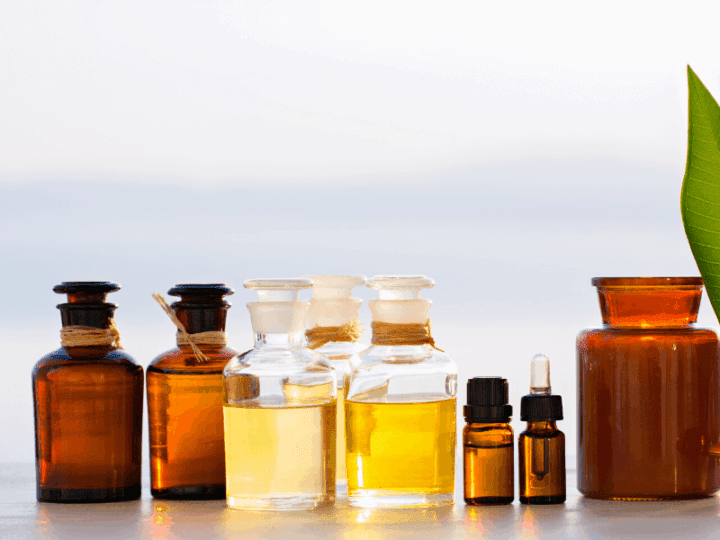
When you are purchasing a CBD oil to use in skincare recipes, looking at the carrier oil can be an important part of choosing the right one for you!
A carrier oil can also be called a base oil; this oil is typically low in taste and weight.
It helps to deliver the CBD oil to where it needs to go and increase absorption and availability.
It also dilutes the oil to make sure that it is safe and reduces the potential for irritation.
Carrier oils in CBD products
MCT oil: MCT stands for medium-chain triglycerides; it is an easily digestible fat and is typically derived from coconut oil. This oil can be used for a variety of things and is an overall good carrier oil.
Hemp seed oil: We talked about hemp seed oil before; it comes from the seeds of the cannabis plant. It is also a wonderful carrier oil for CBD oil to be used in skincare products. It contains omega fatty acids that can be plumping and hydrating.
Sunflower oil: Sunflower is derived from sunflowers and can soothe irritated skin; it can also add to your natural skin barrier making it a great choice for sensitive skin.
Avocado oil: Avacado oil can be a great carrier oil choice if you have naturally dry skin however, it can increase sebum production which can be bad news if you have acne-prone skin.
Grapeseed oil: Grapeseed oil can be great for skin, it is rich in vitamin E and is easily absorbable by the skin.
While choosing a CBD product to use on your skin, the type of carrier oil can be an extremely important factor.
Because I have struggled with breakouts my whole life, I prefer using CBD oil with a hemp seed carrier oil in my skincare recipes.
How to choose a CBD Oil for your skin
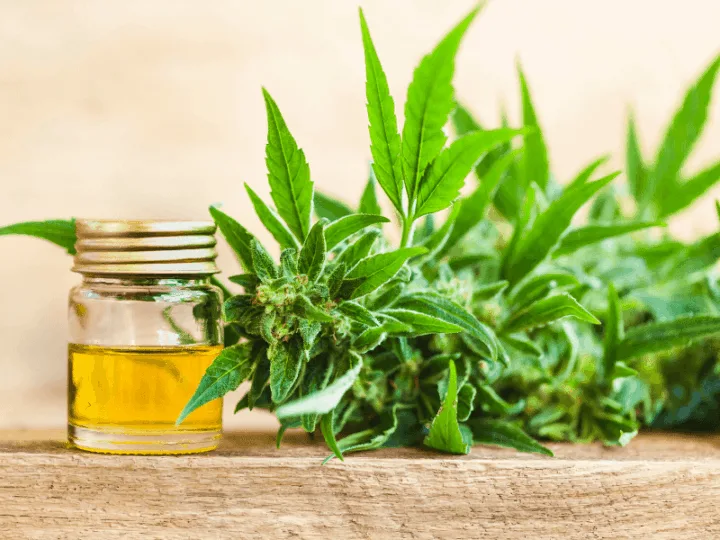
Okay, this is one of the most important things you can do when looking for CBD products for your skin.
There are so many options out there it can be hard to choose appropriate products.
And let’s be honest, the CBD industry is so big, where do you even start?
Let’s start breaking down some of the options that are available.
Many companies label their CBD products as an isolate, full-spectrum, or broad-spectrum; while these terms aren’t regulated, they do mean different things!
CBD Isolate:
This means pure CBD; there are no other cannabinoids including terpenes or flavonoids. It is typically sold in a powder form.
Full-spectrum CBD:
This option contains CBD and everything that occurs alongside it in the hemp plant. This can include trace amounts of THC and other cannabinoids. Trace amounts of THC mean that there is 0.3% THC in the product and it is not considered active.
Broad-spectrum CBD:
This particular product means that no THC is detectable.
A few other things to look for when picking an oil for you:
- Make sure on the ingredient list says cannabidiol, other terms are not compliant and just like we discussed before, hemp seed oil is not the same as CBD oil.
- Check to see if the brand you are purchasing has third-party ratings for purity and strength; this shows that someone outside of the producer tested the product and you are actually getting what you pay for!
- Look at the packaging! Make sure your CBD oil is in a stable package; it should be packaged in opaque bottles to reduce light exposure and a tight-fitting lid.
Making sure that you read your product labels and research brands effectively will ensure that you are getting the most out of your CBD oil!
CBD Pure offers this great option for skincare recipes and they offer a 90 day money back guarantee.
If you ever find yourself confused about a product label, never hesitate to reach out to the manufacturer!
What does 300mg, 600mg, 750mg, CDB actually mean?
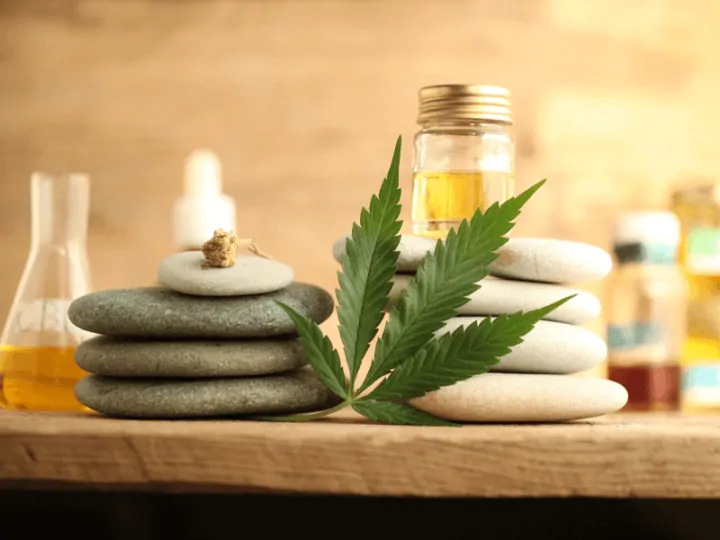
As if there wasn’t enough confusion about CBD product labels, we also have to decipher the strength of the CBD oils we’re choosing from!
Most CBD oils have some type of milligram listed on the bottle such as 600mg; the bottle should also tell you how much oil is in the bottle, such as 30ml.
Using these two numbers we can figure out how much CBD is in each milliliter of your oil.
By taking the number of milligrams of CBD and dividing it by the number of milliliters in the bottle, you can figure out the strength per milliliter.
We’ll use the example above; let’s say we have a 60ml bottle that says 600mg CBD like this one I like:
600 milligrams / 60 milliliters = 10 milligrams per milliliter
This means that in each milliliter of oil, there are 10 milligrams of CBD.
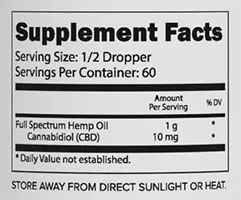
So if you have ever purchased a CBD product and you did not get the expected results, it may be that the product was not as strong as the label had implied!
Another way that CBD strength is listed, is with a percentage labeled on the bottle.
Let’s look at how to figure out that strength using the percentage listed!
Let’s say we have a 10-milliliter bottle of oil that contains 5% CBD, how many milligrams of CBD are there in each milliliter of oil?
- 1 milliliter = 1 gram = 1000 milligrams of oil
- 5% of 1000 milligrams = 0.05 milligrams of CBD
- 0.05 milligrams of CBD x 1000 milligrams = 50 milligrams of CBD per milliliter
- 50 milligrams x 10 illiliters = 500 milligrams of CBD in the bottle
This means that there are 500 milligrams of CBD in the entire 10ml bottle of oil!
If there are ever any doubts about the strength of the oil you purchased, reach out the company who produced it so you can dose your oil properly.
Can CBD oil Cause Skin Problems?
Anything you use on your skin can have negative side effects. When researching different CBD oils, make sure and read the ingredient labels.
Many CBD products use coconut oil as a carrier oil which can clog pores.
If you have a negative reaction to your CBD skincare products, there is a chance that it isn’t the CBD, it could be a filler or another oil in the product.
How do I know how much CBD oil to use in recipes?
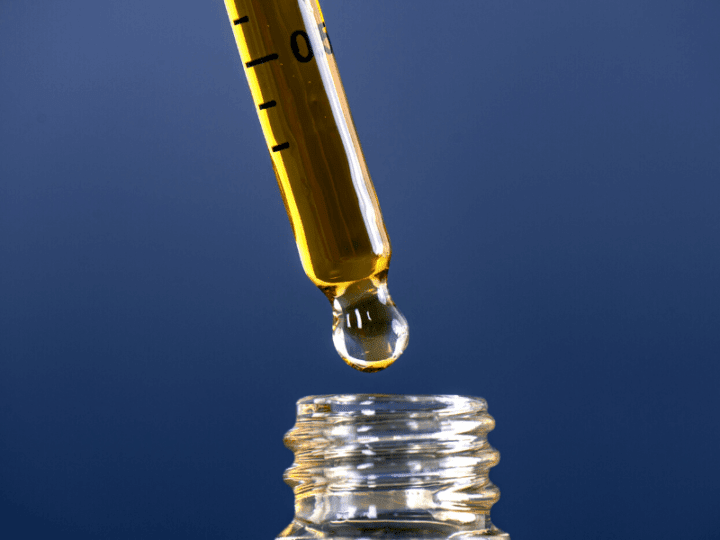
We get it, it can be so confusing knowing how much CBD oil to use in a recipe since oils come in so many strengths!
I personally prefer CBD oil that uses hemp seed as the base oil.
This 600mg CBD Oil is a great option for your skincare recipes:
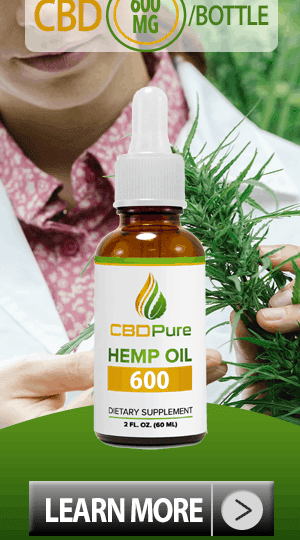
CBD Pure uses non-gmo, organic hemp oil, performs rigorous testing and offers a 90 day money back guarantee.
When you choose recipes that include CBD oil, you must know the strength of the oil that is being used in the recipe and the strength of the oil that you are using!
Knowing these things can ensure that you are putting the same amount of CBD into your recipe!
At the end of the day, in many cases, the amount of CBD that you use in recipes should be the amount that works best for you!
Some people can use more than others but, if you are new to CBD oil use, it can be a good idea to start with a smaller amount so you know how your body reacts to CBD.
Low down on CBD in skincare:
Once you start using CBD in your skincare routine, you’ll be hooked!
It can be refreshing, soothing, and help rejuvenate your skin.
We are so excited to be releasing some new recipes that combine the power of CBD and the natural benefits of organic ingredients!
Be on the lookout for some great additions to your skincare routine!
DIY CBD Skincare Recipes to Try
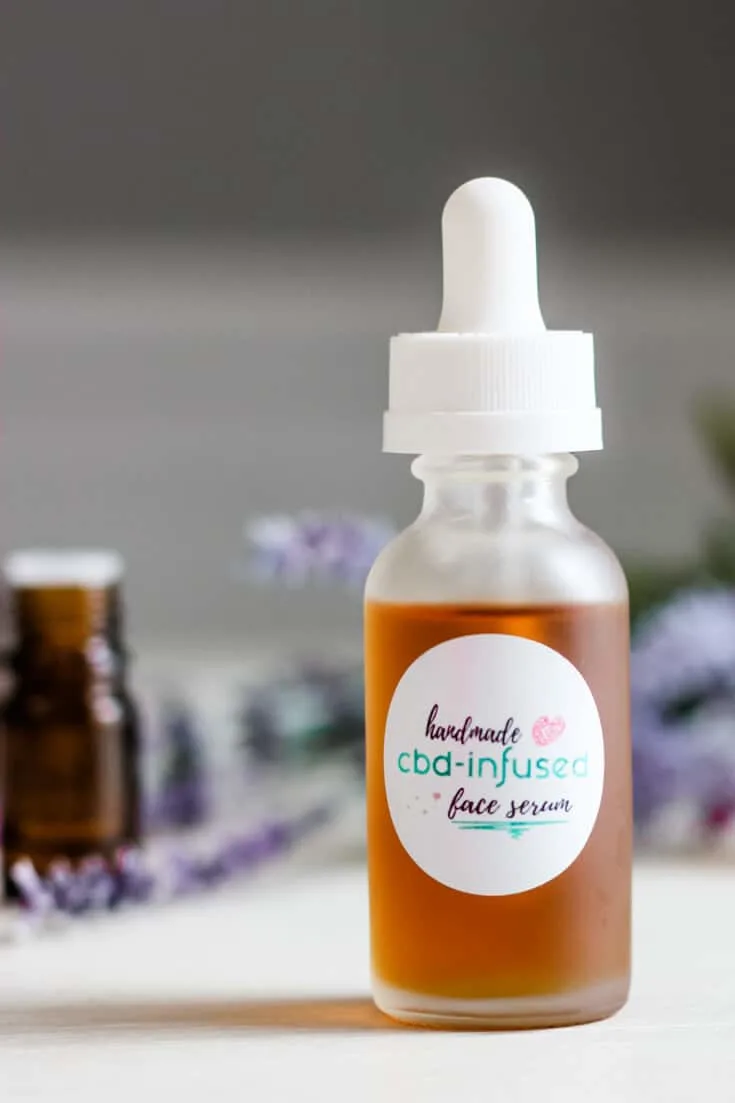
DIY Anti-aging Face Serum + CBD and Essential Oils
If you’ve tried the creams, the salves, the everythings. But you still haven’t found that ‘thing’ that gives your skin the boost it needs. Well, …
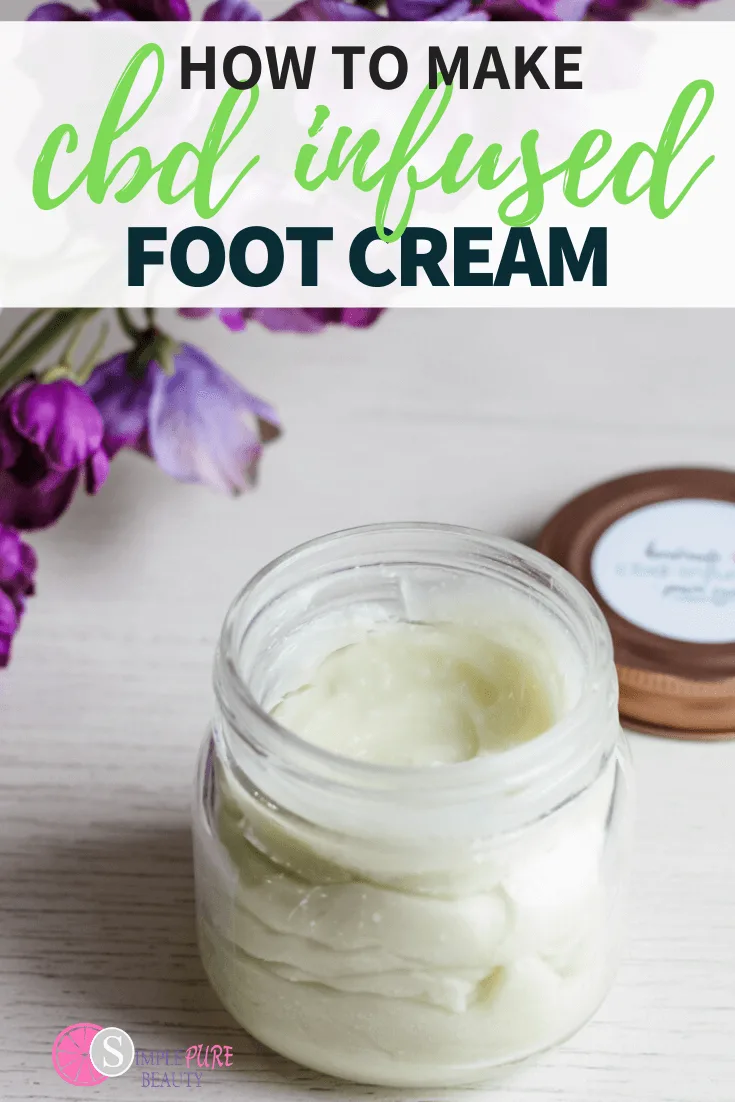
DIY CBD Infused Foot Cream
This DIY CBD Infused Foot Cream recipe is just what you need for soothing your aching feet. And the best part? You can make this …
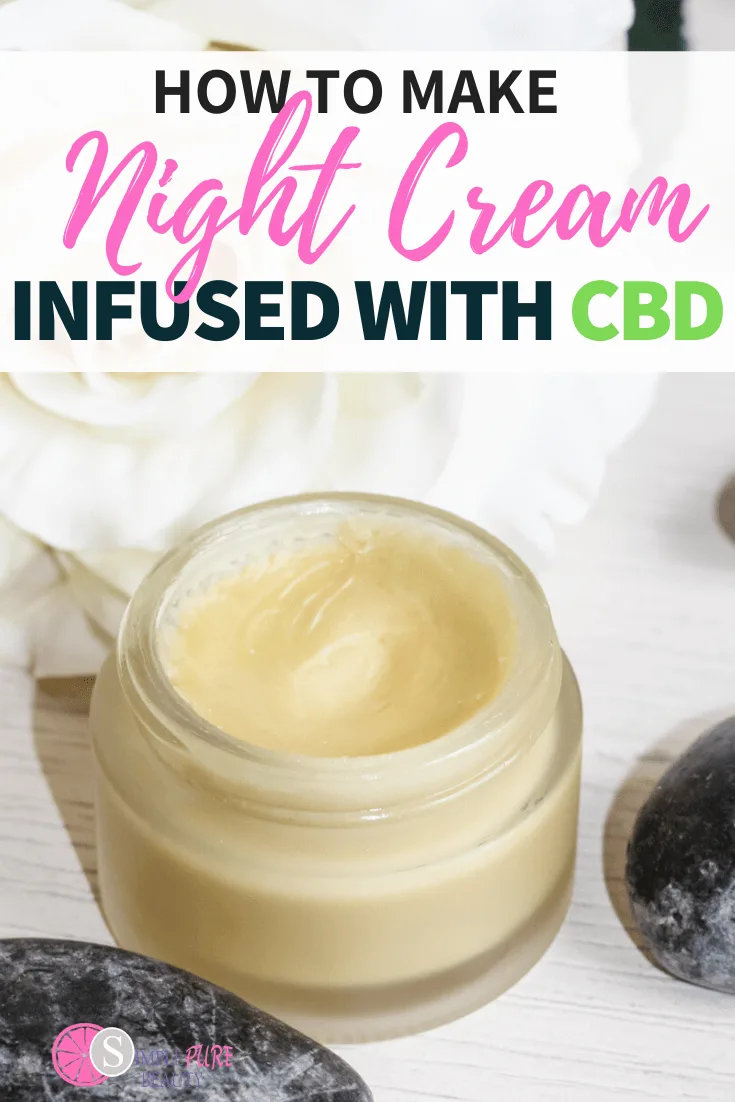
CBD Anti-aging Night Cream Recipe
Are you looking for a one-step skincare routine that will help your skin stay soft and rejuvenated? Check out this Homemade CBD Night Cream Recipe! …

